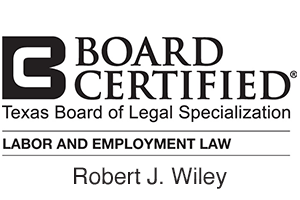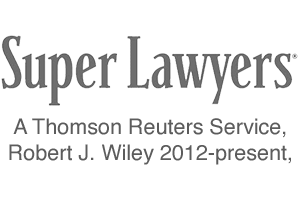in Austin, Texas
The Hiring Process
Discrimination During Hiring is Illegal
Many of the same laws that protect employees during their employment also protect job applicants during the hiring process. The Civil Rights Act, Americans with Disabilities Act, Age Discrimination in Employment Act, and many more all prohibit discrimination against job applicants as well as employees. As such, it is illegal to discriminate against job applicants because of their race, sex, age, religion, disability status, or any other protected category. These federal law protections are strong, but it is important to note that rules about the hiring process can also vary greatly from city to city and from state to state. Everybody is bound by the anti-discrimination protections existing in federal law, but some jurisdictions may have more specific rules and regulations that govern employers and job applicants.
Prohibited Actions During the Hiring Process
Employers should not ask job applicants questions relating to protected characteristics during the application process. These protected characteristics range from race, religion, and national origin to health, pregnancy status, and disability status. Age, sex, and even genetic information are also considered protected under federal law. Since it is illegal to take these factors into consideration, asking such questions is already a warning sign for evidence of discrimination. Despite this, it is not uncommon for job applicants to be asked if they plan on starting a family, whether they are disabled, or other such questions. Employers who make decisions about which applicant to hire based on their answers to such questions have broken the law. If you have lost a job opportunity because of your age, race, disability status, or any other protected category, you should contact an attorney to bring a claim. Our Austin employment lawyers can help you make your case as strong as possible.
Retaliation sometimes materializes during the hiring process. Employees who have made claims or complaints at their previous jobs often find that new job offers disappear after their prospective employer gets in touch with their old employer. For example, an employee who lists her previous employer as a reference on her resume, but who had once made a complaint to the EEOC about her job, might not get the job because her potential new employer found out about the complaint. Retaliation against employees who make a workplace discrimination complaint is prohibited under both federal and state law, and that protection extends to job applicants. If you previously made an EEOC complaint at your job and have reason to believe that you are losing job opportunities because of this, your rights may have been violated.
Rules about the hiring process can be somewhat complicated when compared to the rules governing employment. Companies use many different tactics to differentiate applicants, not all of which are legal. For example, employers may subject applicants to credit checks or criminal history checks, and in rare cases may even require stranger things like polygraph tests. While the ultimate verdict depends on the situation, all of these actions may potentially be considered discriminatory depending on who is negatively affected by them and whether they are truly necessary. If part of the hiring process at your job seems especially unnecessary to you, or you feel that one of the criteria used has the potential to cause discrimination, it may be worth it to consult with a lawyer.
When Should You Bring a Claim?
The rules about making claims for discrimination during the hiring process are subject to the same deadlines as the rules about discrimination during employment. If you are filing under state law, you have 180 days to file a charge of discrimination with the EEOC or TWC; if you are filing under federal law, you have 300 days. These deadlines can be unforgiving, so we advise that you consult with one of our Austin employment discrimination lawyers as soon as possible if you have been a victim of such discrimination. You can get in touch with us by filling out our intake form or calling our office at (512) 271-5527.







